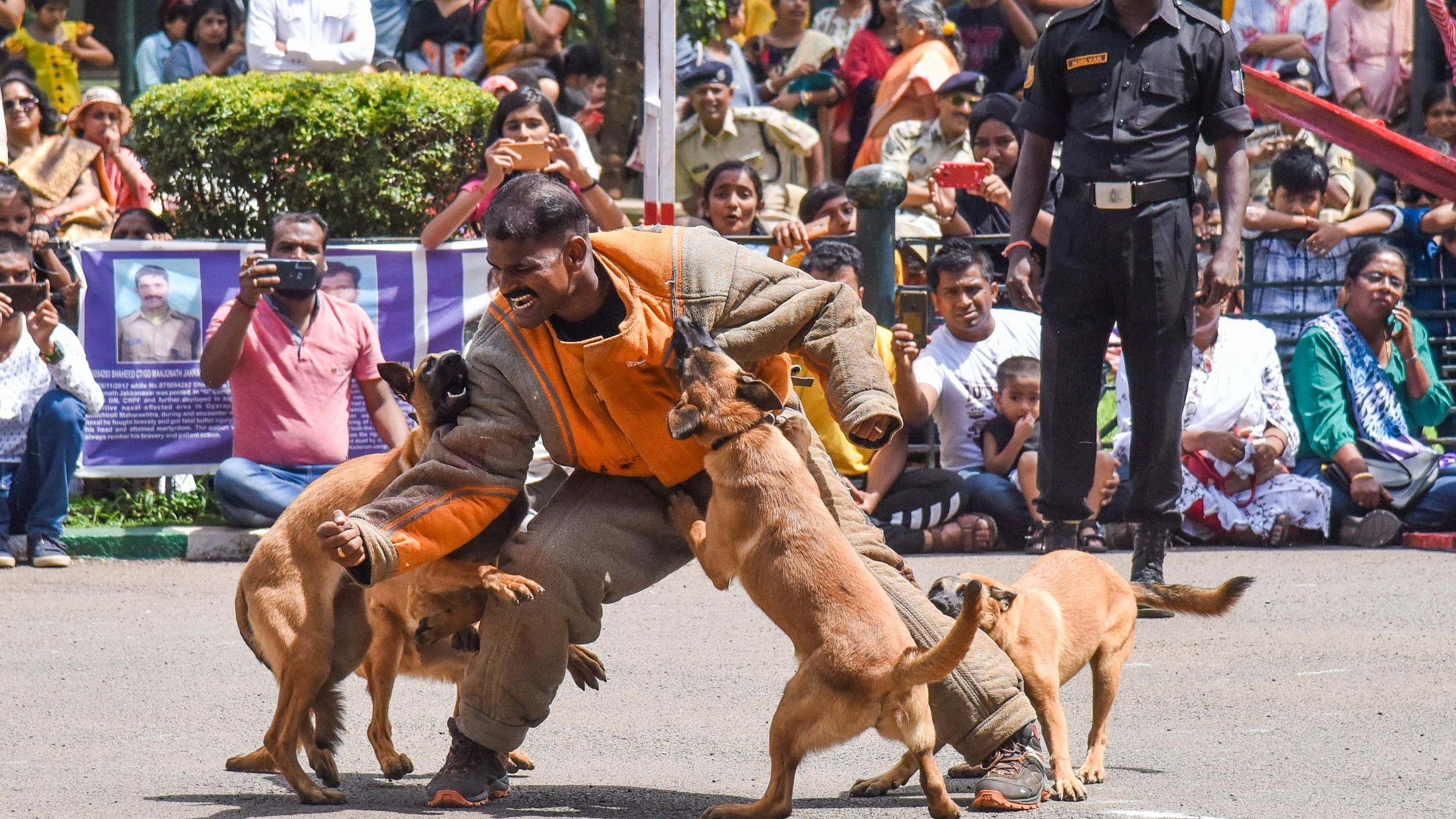
Bengaluru's four-legged heroes may get their own training academy in Adugodi.
Credit: DH File Photo
Bengaluru: The City Armed Reserve (CAR) has sent a proposal to the Karnataka police chief, requesting to set up a canine training school in Adugodi.
Since the introduction of the canine squad in 1968, the Bengaluru South CAR has informally trained dogs from all districts in Karnataka. Now, on the insistence of Bengaluru Police Commissioner B Dayananda, the CAR has taken a step towards standardising it by upgrading it to an official training school.
This initiative, as detailed in documents obtained exclusively by DH, underscores the increasing importance of the canine squad, particularly in drug detection and explosives investigation cases.
Notably, the Bengaluru city police reported a six-fold increase in opium seizures, totaling 63.14 kg, over the past two years, alongside the confiscation of approximately 5,000 kg of ganja in 2023. The canine squad has been pivotal in these operations, proving its indispensable role in ongoing and future security measures.
Training
Traditionally, Superintendents of Police (SPs) across Karnataka purchase puppies and send them to Bengaluru for training, post-vaccination. The optimal age for beginning their training is between three and six months.
The handlers provide training to all the dogs that are sent to the facility. The handlers in charge have received training from the Central Reserve Police Force (CRPF), Border Security Force (BSF), and Training School in Hyderabad.
Four breeds are inducted into the police department — German Shepard, Doberman, Labrador, and Belgian Malinois — which render service until they tick the fitness check, essentially until the age of 10.
The dogs undergo training in two phases — obedience and specialisation — for a period of three months each. During the obedience period, the dogs bond with their handlers for two weeks and for the remaining time, they are taught commands by the handlers.
During the second phase, the canines are listed into three groups — narcotics, crime detection, and explosive detection — based on their sensitivity to smell, calmness and sharp mindedness. However, of late, the dogs are sent to the facility with predetermined specialisation and are trained based on that.
Training employs classical and operant conditioning techniques, focusing on scent differentiation and tracking. Daily exercise routines are tailored to each breed, with Labradors, for example, running shorter distances than their counterparts.
Currently, Bengaluru’s training center has contributed to the training of 250 dogs serving statewide, with 64 dogs in the Bengaluru CAR canine squad, including eight under training. Notably, a Golden Retriever named Bheema specialises in explosive detection.
Diet
In the morning, the canines are fed masala-free biryani after their run. In the evening, they receive processed food mixed with egg, milk, and ragi malt.
Requirements sought in proposal
Kennel facility for 30 canines.
10 segregation kennels
10 quarantine kennels.
Food requirements and kitchen.
60 handlers.
Veterinarian.
40 officers, including inspectors and sub-inspectors.
14 vehicles.